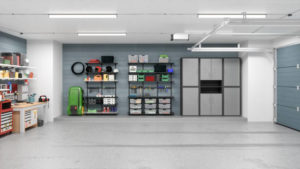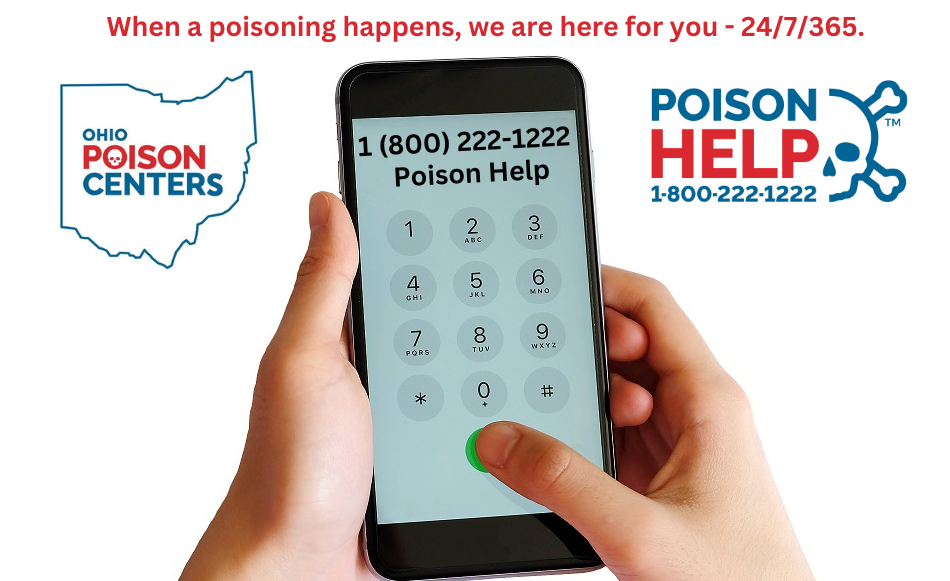Did you know that more than 90 percent of poisonings in the United States happen at home? Our families spend most of our time within our homes eating meals, sleeping or spending time together. That’s why we need to be sure that we safely store household chemicals, medications and other potentially poisonous substances. What types of poisons are in your home and how do you know if something is poisonous? Below we go room by room and discuss what potential poisons can be kept there and how to store those items safely.
Kitchen
The kitchen is often referred to as the heart of a home. Family meals are cooked there, and it is a place where many memories can be created. However, the kitchen can also store some hidden dangers. Remember, anything can be poisonous if it’s taken by the wrong person, in the wrong amount, or by the wrong route (such as swallowing an eye medication). Here is a list of items that may be poisonous in the kitchen:
- Alcohol
- Cleaning products
- Improperly stored perishable food items
- Medications
- Undercooked meat, poultry, eggs
Prevent poisonings with alcohol, medications, and cleaning products by safely storing them out of sight and out of reach of children. Safe storage options include on a top shelf in a cabinet or in a medication lockbox. Some adults like to use removable cabinet locks in the kitchen to keep small children out of cleaning products and detergents. Sometimes children are naturally curious and may see this as a puzzle that needs to be solved. Locked cabinets that are up high and out of sight and reach are the safest option for storing those potentially harmful products.
Food Safety in the Kitchen
When preparing meals with meat, poultry, or eggs, make sure you know the minimum cooking temperatures of the meat you are cooking. Be sure to clean all surfaces that uncooked meat comes in contact with, including your hands, before, during and after handling. Perishable foods often have a BEST BEFORE or EXPIRATION date on the package so be sure to look for those dates before consuming. Remember that refrigerated foods need to remain refrigerated. If dairy products or uncooked meats are left out above 40 degrees Fahrenheit (40ºF) for too long, the items can spoil and be unsafe to eat. When cleaning fruits and vegetables, be sure to rinse them with running water. Do not wash meat, poultry, or eggs.
Please visit the USDA for more information on Safe Minimum Internal Temperatures.

Bedroom/Living Room
Our bedrooms and living areas contain many household items that could be harmful if swallowed or used improperly. Here is a list of products to be aware of in your bedroom and living areas:
- Colognes/perfumes
- Skin care products
- Makeup
- Lotion/medicated ointments
- Batteries (including button batteries)
- Cigarettes/smokeless tobacco products
- Marijuana edibles
- Mothballs
- Medications/vitamins
- Alcoholic beverages
- Home fragrance oils
- Coins
One of the most important ways to prevent unintentional poisonings is to store non-food items in a different area away from food and drinks. If you have small children in the home, be sure to store these potentially harmful items out of sight and reach. Keep in mind, purses and handbags could contain medications, coins, tobacco products, or cosmetic products and should also be stored out of sight and reach of children.

Bathroom/Washroom
Bathrooms contain many household items that could be harmful if swallowed or used improperly. Here is a list of products to be aware of in your bathroom:
- Cleaners/disinfectants
- Hair products
- Make-up
- Medications/vitamins
- Toothpaste/mouthwash
- Soap
- Nail polish/polish remover
- Shampoo/conditioner/shower gel
- Bath salts/bath bombs
- Lotion/body oils/creams
- Skin care products
- First aid kits containing ointments
- Rubbing alcohol
- Shaving products
Be sure to store items in their labeled, original containers to prevent mix-ups. For example, items such as antibiotic ointments, muscle pain relief cream, or diaper rash cream can look very similar to toothpaste. Keep in mind, if these items are stored in the same place, it could be easy to mix them up. Medications and vitamins should be stored up high in a cabinet out of sight and reach of children. If there are medications for more than one family member in the bathroom, be sure to store each person’s medication separately.
Bathroom cleaners may also be harmful if swallowed, inhaled, or splashed in the eyes or on the skin. All cleaners should be stored safely away from children. Never combine multiple cleaning products together and follow all safety instructions on the product packaging.

Laundry Room
Laundry detergents, pods, and scent beads are typically stored near the washer and dryer. These products have a fragrant smell and eye-catching colors which can attract young children. They can also be harmful if swallowed or splashed in the eye. Be sure to store these products in their original container, up high and out of sight and reach of children.

Garage/Storage Areas/Sheds
Garage and storage areas typically house items that we use to do yard work, home, or car maintenance. Some of these items can be very poisonous if swallowed. Here are some common items found in these areas:
- Car maintenance products (antifreeze, oil, windshield washer fluid, car wash products and aerosols)
- Gasoline/kerosene
- Lighter fluid/torch fluid
- Paint
- Pool maintenance supplies
- Polyurethane/paint thinner/paint remover
- Pesticides
- Lawn maintenance chemicals (fertilizer/weed killer)
- Adhesives
It is very important to read all warning labels and follow all packaging instructions when using these products. Always keep these products in their labeled, original containers. Never put these products in another container and always store them away from food or drinks. Swallowing even small amounts of products, such as antifreeze or windshield washer fluid, could be life-threatening.
Despite prevention efforts, sometimes poisonings can still happen. Whether someone has been exposed to a product or you simply have a question, your poison center is here to help! We are available to take your call 24 hours a day/7 days a week/365 days a year. Our calls are answered by specially trained nurses and pharmacists that are experts in poison information. Be prepared by saving the Poison Help phone number 1-800-222-1222 in your phone today!


